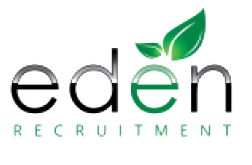Are you ready for Generation Z?

Move over Millennials, it’s time for Generation Z …not exactly a comforting thought for many a HR manager, still grappling with how to relate to the demographic cohort that is now on the way out.
So who are Gen Z? They were born from the mid-90s to 2010, so no older than 23. They make up 20% of the population in Ireland. And they are just starting to enter the workplace.
The Irish Times has summed them up as “conscientious, ambitious, and over-anxious”. What does that mean for the workplace?
Firstly, they are individuals. They want to be seen as such and rewarded as such. That may require a rethink of prevailing HR practices. While they can and will work in groups, they are often happier working alone, a disposition which may be a product of having been reared on technology.
Next, they have lots of choice in a buoyant jobs market and will go where their individual work styles can be satisfied. That may not mean a 40-hour week, or at least not a 40-hour week in the office. Unlike previous generations, they are quite comfortable with the gig economy. They don’t expect – or want – a job to last for life. In order to capture Gen Z talent, traditional differences in how employers treat contractors vis-a-vis employees may need to be radically reconsidered.
They are not cogs in a machine, they want to see the bigger picture and how their roles are contributing to it. For ‘job description’ think ‘impact description’, which plots how their performance should assist the organisation in achieving its goals. That is something employers will surely welcome.
Related to this is that Gen Z are keener on activism than previous generations. They want to make the world a better place and will want those company goals to be aligned with this vision. But then, as an employer, so do you, don’t you?
Gen Z are not all world beaters. The environment in which they grew up has imbued them with both strengths and weakness.
They may need help on social skills. They have grown up texting rather than communicating face-to-face and this can prove a real shortcoming in the workplace. It’s not just higher-end public speaking or negotiation skills that will need honing, it’s basic social competence in relation to those around them. Consider a mentorship programme, where a seasoned employee introduces them to colleagues, takes them to lunch and assists with what is likely to be a real acclimatisation process for the Gen Z recruit.
Bred on technology, the attention spans of Gen Z are notoriously short, and induction and training programmes generally need to take account of this.
Finally, well-being is more than a buzzword for this generation. They are very familiar with mental health and the more an employer can convey an understanding of how this relates to the workplace the better. They are into physical health, and out-of-work social activities should reflect this.
For the HR Manager, much of the above may smack of what they were reading a few years back about the emerging millennials. Yet there are differences between the two cohorts. George Beall in The Huffington Post tells us that, born in a world of continuous updates, Gen Z are less focussed, but better multi-taskers, which is a potentially big boon for the workplace. They are also more entrepreneurial, and are early starters, with predictions that many will leave school directly for the workplace, perhaps to study later online, in lieu of taking the traditional college route.
There is every likelihood that Gen Z will make for better, more conscientious and more productive workers, embodying the “entrepreneurial imagination” that 1st world organisations will need to compete in years to come. Just mind how you manage them.
